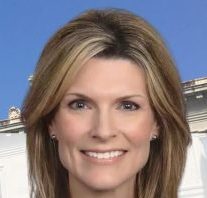By Janet Williams and Haley Carney
TheStatehouseFile.com
INDIANAPOLIS—The Democratic presidential candidates who appeared before the National Urban League’s convention Friday morning all addressed, in one way or another, the issue of inequality and the impact on people of color.
But the proposals that got the loudest response and applause came when Sen. Kirsten Gillibrand of New York and Sen. Kamala Harris of California said they want to legalize marijuana and make sure African-Americans can participate in pot businesses as they take off.
Her plan is to give them “a place where they can be first in line to get those jobs.â€
The National Urban League, meeting in Indianapolis for the first time in 25 years, invited every candidate for president to speak and nine accepted. Besides Gillibrand and Harris, South Bend Mayor Pete Buttigieg and conservative filmmaker and writer Ami Horowitz spoke Friday morning at the Indiana Convention Center.
On Thursday, former Vice President Joe Biden, Sen. Amy Klobachur of Minnesota, Sen. Cory Booker of New Jersey, former Rep. John Delaney of Maryland and Rep. Tim Ryan of Ohio made their pitches about why they should be the candidate to challenge President Donald Trump next year.
Buttigieg, who got a smattering of applause during his 20 minutes, sounded many of the same themes he addressed a week ago when he appeared before the Young Democrats of America at its Indianapolis convention.
He spoke of systemic racial inequality that has stifled opportunities for African Americans for generations and what the next president must do to deal with them, including his Douglass Plan, named for Frederick Douglass. It addresses everything from education funding to mass incarcerations, which Buttigieg said he would end by getting rid of mandatory minimum sentences.
“You are four times as like to be arrested for the same offense as a white person,†Buttigieg said. “You are living in a different America and I think for too long we have believed we were on a path where systemic racism was going to take care of itself.â€
In a swipe at Trump, he said, “I believe a president like the one we’ve got now does not come near the Oval Office unless the ground is shifting beneath our feet. My generation saw this country elect its first black president and then turn around and elect a racist to the White House.â€
In a question-and-answer session with National Urban League President Marc Morial, Buttigieg acknowledged the lack of diversity and other problems in the South Bend police department where a white police officer shot and killed a black man.
He said he is addressing the issue, in part, by building trust between the African-American community and police. In South Bend, he said they are starting by inviting the community to weigh in on use of force policies and police training.
Gillibrand, who has struggled with low poll ratings, positioned herself as the fighter in the race before the Urban League audience as she unveiled her build local, hire local infrastructure plan. She got applause when she pledged to spend $100 million on infrastructure projects with a provision that half of the money be spent on communities left behind, with 30% of the money going to minority-owned businesses.
In response to a question from Morial, Gillibrand said to loud applause and laughter, “On the first day I become president, after I Clorox the oval office, the second thing I would do is restore our moral leadership on the world stage.â€
She criticized Trump for being unwilling to stand up to world leaders like Vladimir Putin and for continuing to create divisions in the nation.
Like Buttigieg, she said she would support policies to end the mass incarceration of African-Americans.
“We don’t enforce our criminal justice laws the same,†she said. “We know there are black and brown and white young men who smoke pot at the same rate, but who gets arrested?â€
Harris, the final candidate to speak, took on Trump more directly than any of the others as she called the election a fight for equality. She said he stands in the way of progress.
“He wants to take us back. Donald Trump says he wants to make America great again. Well, what does again mean? Back before the civil rights act? Back before the voting rights act? Back before Roe v Wade?â€
“Well, we’re not going back,†Harris said to applause.
The California senator announced her plan to provide historically black colleges with $60 billion in STEM—science, technology, engineering and math—funding and another $2.5 billion to the teacher programs in the same colleges.
Morial asked Harris to address one of the issues she has been most criticized for throughout the campaign—her role in California as a prosecutor.
After noting that she had to explain her decision to become a prosecutor to her family members who were deeply involved in the civil rights movement, she said, “Why do we always have to be on the outside? Shouldn’t we have a role on the other side?â€
Harris said that as prosecutor she had the power to create a re-entry program for ex-felons so they could re-establish their lives in the community and avoid committing another crime.“And I didn’t have to ask anybody’s permission to do it because I was running the office,†she said.
The most awkward moments came as Horowitz lectured the largely African-American audience about victimhood and saying that Democrats have failed them.
“They take you for granted,†he said. He received little applause and at one point a few people left the conference room where the session was held.
Horowitz said he, too, is focused on equality—equality of opportunity. He said Democrats focus on equality of outcome, which leads to socialism.
The four-day conference of the National Urban League, a nonpartisan organization to focuses on issues urban area, ends Saturday.
Janet Williams is executive editor of TheStatehouseFile.com and Haley Carney is a reporter. TheStatehouseFile.com is a news website powered by Franklin College journalism students.




